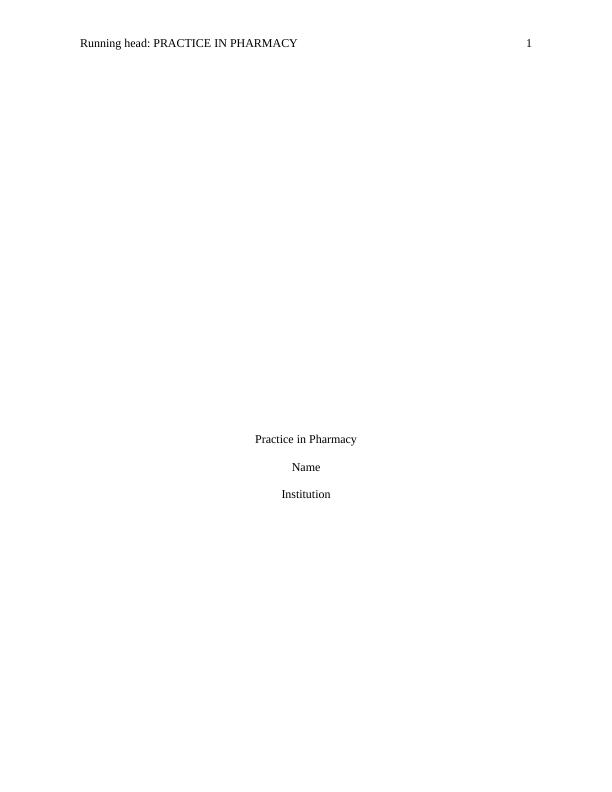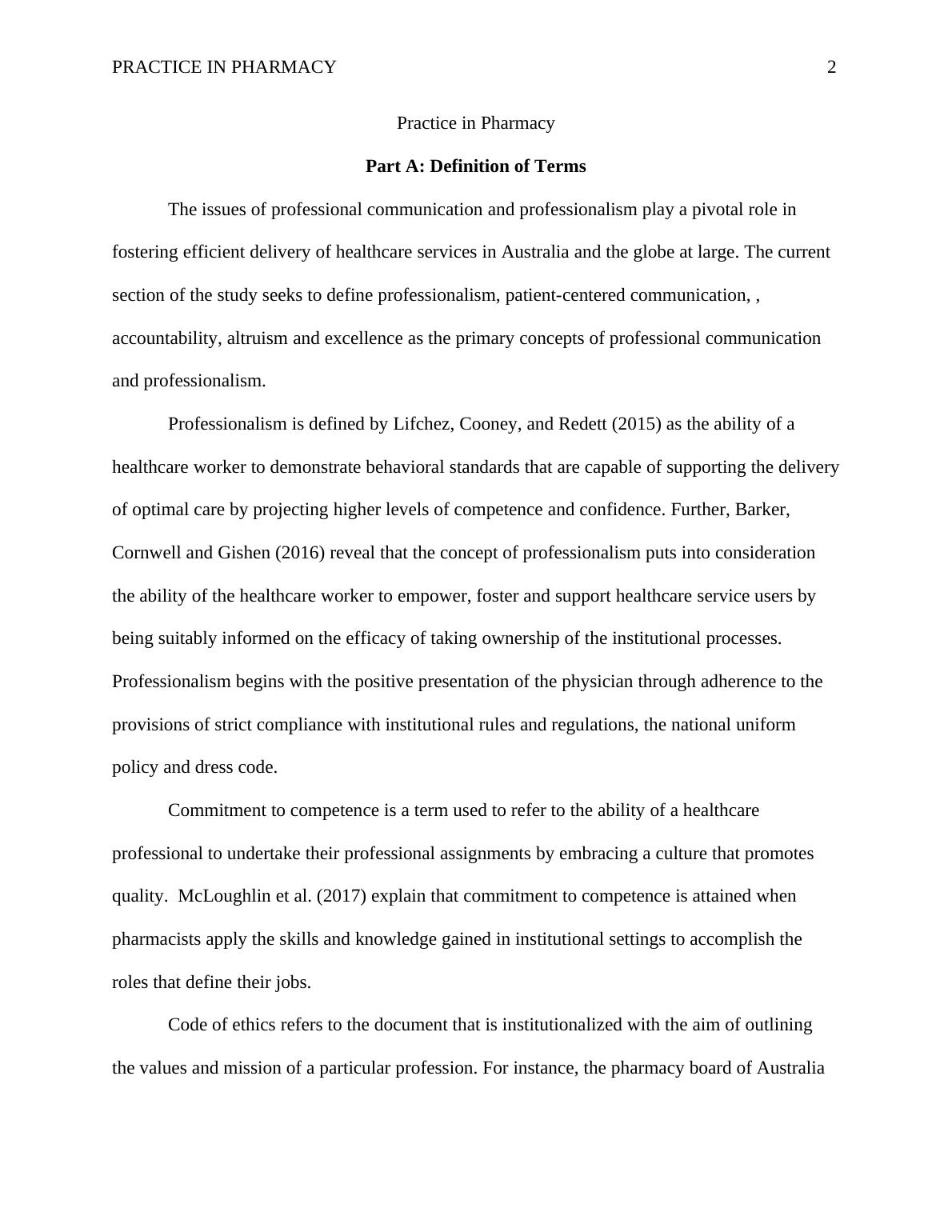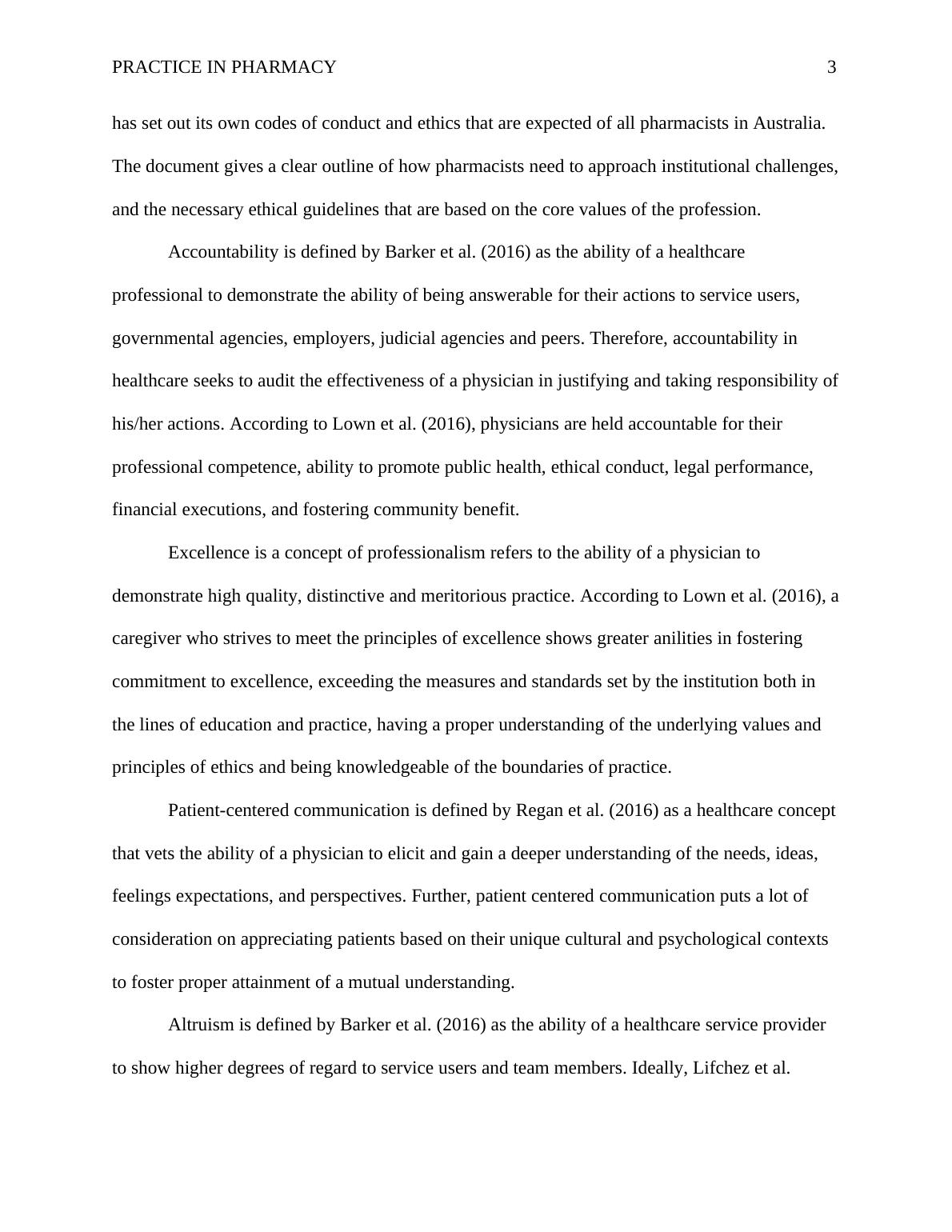Practice in Pharmacy
Write a 1000 word essay discussing how professional communication skills and professionalism contribute towards optimal patient care by pharmacists.
8 Pages1413 Words179 Views
Added on 2023-04-17
About This Document
This article defines professionalism, patient-centered communication, accountability, altruism, and excellence in the context of pharmacy practice. It also discusses the importance of patient-centered communication and accountability in promoting optimal patient care.
Practice in Pharmacy
Write a 1000 word essay discussing how professional communication skills and professionalism contribute towards optimal patient care by pharmacists.
Added on 2023-04-17
ShareRelated Documents
End of preview
Want to access all the pages? Upload your documents or become a member.
Pharmacists Prescribing in Australia: Evidence and Perspectives
|15
|4487
|72
Professional Misconduct Case Summary and Analysis
|4
|770
|500
Ethical Issues in the Pharmaceutical Industry
|11
|3495
|225
Job Description for Clinical Pharmacist
|7
|1390
|451
Assessment 2: New Graduate Application
|7
|1476
|420
Professionalism and Nursing Career
|4
|1127
|239



